| Cover of Society of the Spectacle | |
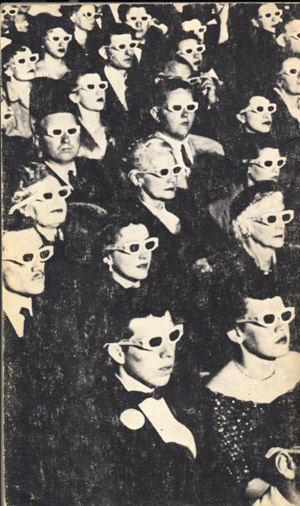 |
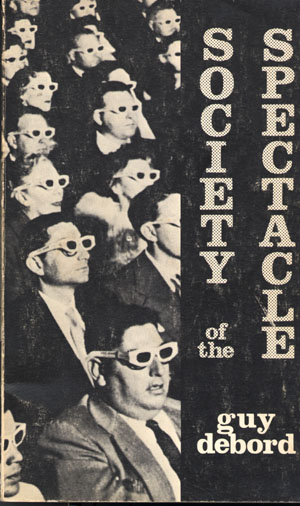 |
| What is the rhetoric of this image? How does the spectacle acquire the power to fashion the audience into a homogeous "mass?" | |
If you look at media theory purveyed in this video, or Guy Debord's book, you see a contradiction at the heart of media determinism: the theory that argues media determinism also suggests the critic’s freedom of the determinism described. Thus, the makers "Call It Sleep", like Guy Debord, use “found media” so as to redirect its meaning, it uses the spectacle against itself (in French “detournment”), so as to develop a critique of media culture.
| Is the same contradiction at work in McLuhan? | |
|
central myth: in the beginning was the (oral) Word in the village….
|
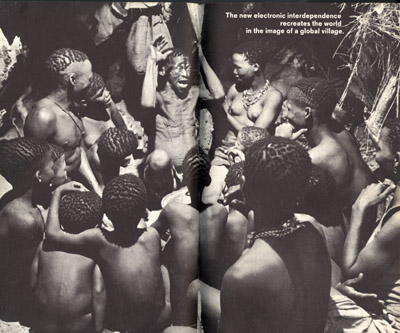 |
| then there was the “fall” into linear, rational Print… | 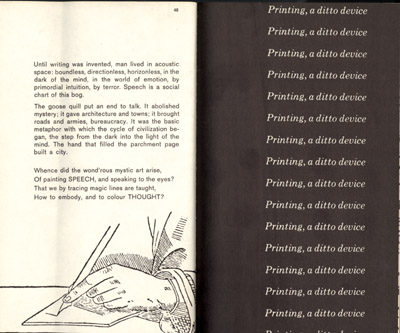 |
| media have always entailed an extention of the body: |  |
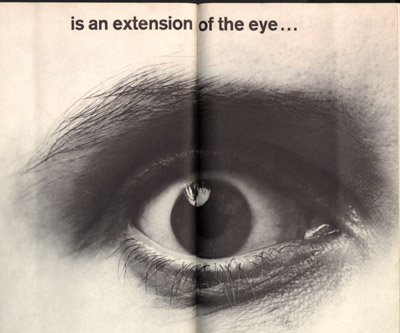 |
|
| and now, through the miracle of (cool) electronic media, we can shed our old resistances, we can enjoy the spontaneous pleasures of playing in an expanded electronic media sphere |  |
| Paradox: McLuhan's media theory seeks to use electronic media to return original place of self-presence, identity, community—the global village, but this appears to be (in its Romantic appeal to nature) beyond mediation | |
| Question 1: should media be viewed as environment (or “media-sphere”)à and thus as a container or confining limit of what life can be? | |
| Question 2: should we seek, as McLuhan does, to determine the essence or ontology of each medium? what are the implicit groundrules of such a typology of media, for example by distinguishing hot from cool media? | |